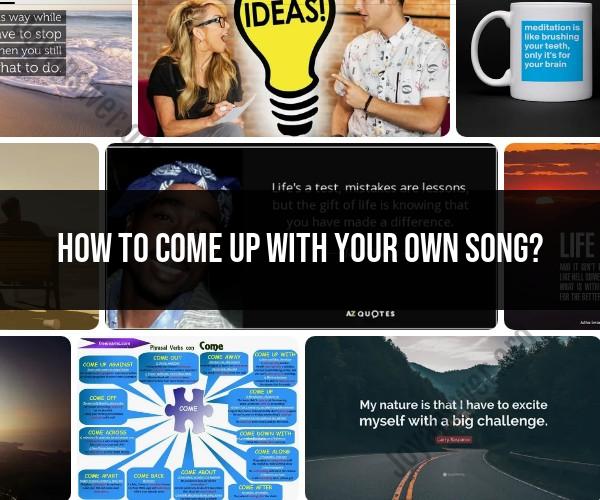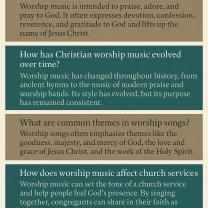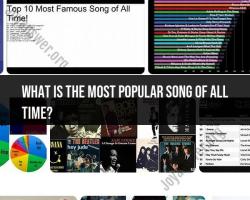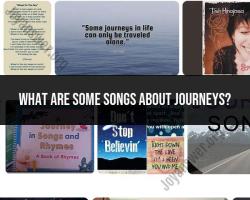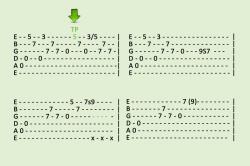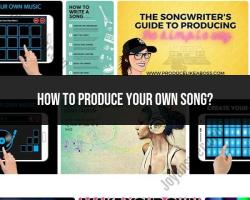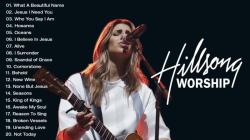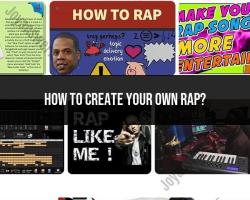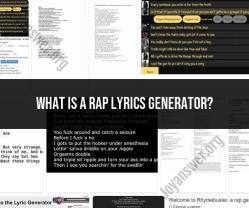How to come up with your own song?
Creating your own song can be a fulfilling creative process. Here are some tips and techniques to help you come up with your own song:
1. Find Inspiration:
- Inspiration can come from anywhere. It might be a personal experience, an emotion, a story, or something you've observed. Keep a notebook or digital note-taking app to jot down ideas as they come to you.
2. Choose a Song Structure:
- Most songs have a structure that includes verses, a chorus, a bridge, and sometimes an intro and outro. Decide on the structure that best fits your song idea.
3. Create a Chord Progression:
- Start with a chord progression on your instrument (e.g., guitar or piano) that fits the mood of your song. Experiment with different chord changes until you find one that resonates with your lyrics or melody.
4. Write Lyrics:
- Begin writing your lyrics. Your lyrics should tell a story, convey an emotion, or share a message. Be authentic and don't be afraid to be vulnerable in your writing.
5. Develop a Melody:
- Create a melody that complements your lyrics and chord progression. The melody should fit the mood and theme of your song.
6. Rhyming:
- Rhyming can add a poetic and rhythmic quality to your lyrics. Experiment with rhyme schemes and see what works best for your song.
7. Use Metaphors and Imagery:
- Incorporate metaphors, similes, and vivid imagery to make your lyrics more compelling and relatable.
8. Revise and Edit:
- Don't be afraid to revise your lyrics and melody. The first draft is rarely the final one. Make sure your words and melody flow smoothly and convey your intended message.
9. Create a Catchy Chorus:
- The chorus is often the most memorable part of a song. Make it catchy and emotionally engaging. It should encapsulate the core message or feeling of your song.
10. Experiment with Song Dynamics:- Use dynamics like tempo changes, volume shifts, and instrumental variation to add depth and interest to your song.
11. Record a Demo:- Record a simple demo of your song. This can be a rough recording on your smartphone or computer. It helps you hear how the song sounds and may inspire further changes.
12. Seek Feedback:- Share your song with trusted friends or fellow musicians for feedback. Constructive criticism can help you improve your songwriting.
13. Practice and Refine:- Practice singing or playing your song. Refine your performance and make any necessary adjustments.
14. Perform and Share:- Perform your song live or share it on platforms like YouTube, SoundCloud, or social media. Sharing your music allows you to reach a wider audience and receive feedback.
15. Stay Open to Inspiration:- Keep your creative channels open. Inspiration can strike at any time, so be ready to capture new ideas as they come.
Remember that songwriting is a skill that improves with practice. Don't be discouraged by initial challenges or writer's block. Keep creating, experimenting, and refining your craft. Your unique voice and experiences will shine through in your music.
Strategies for generating original song ideas and concepts
There are many different ways to generate original song ideas and concepts. Here are a few strategies:
- Draw inspiration from your own life experiences. Your own life experiences are a rich source of inspiration for songwriting. Think about your own thoughts, feelings, and experiences. What are you passionate about? What challenges have you faced? What have you learned?
- Listen to other music and pay attention to what you like and dislike. Listening to other music can help you to learn about different songwriting techniques and styles. Pay attention to the lyrics, melodies, and harmonies of the songs you like. What makes them so appealing to you?
- Use songwriting prompts and exercises. There are many different songwriting prompts and exercises available online and in books. These can help you to get started on a new song or to break through a creative block.
- Collaborate with other songwriters. Collaborating with other songwriters is a great way to come up with new ideas and perspectives. You can bounce ideas off of each other and help each other to develop your songs.
Creative exercises and practices for developing your own songs
Here are a few creative exercises and practices for developing your own songs:
- Freewriting: Freewriting is a great way to generate new song ideas. Simply start writing down whatever comes to mind, without worrying about grammar or spelling. Once you have a few minutes of writing, you can start to look for patterns and ideas that you can use in your songs.
- Stream-of-consciousness: Stream-of-consciousness is similar to freewriting, but it is more focused on capturing your thoughts and feelings as they happen. This can be a great way to generate raw and emotional lyrics.
- Melodic improvisation: Melodic improvisation is a great way to develop new melodies for your songs. Simply start humming or singing a melody and see where it takes you. You can use a variety of techniques, such as repetition, variation, and contrast.
- Lyrical experimentation: Lyrical experimentation is a great way to find your own unique voice as a songwriter. Try using different poetic devices, such as metaphors, similes, and personification. You can also experiment with different rhyme schemes and rhythms.
Finding your unique musical style and voice as a songwriter
Finding your unique musical style and voice as a songwriter is a journey. It takes time and experimentation to discover what makes your music special. Here are a few tips:
- Be authentic. Write about things that are important to you and that you have personal experience with. Don't try to be someone you're not.
- Experiment with different styles and genres. Don't be afraid to experiment with different styles and genres of music. You may be surprised at what you come up with.
- Listen to your feedback. Get feedback from other musicians and listeners. This can help you to identify your strengths and weaknesses and to develop your unique sound.
Overcoming writer's block and creative challenges in songwriting
Writer's block is a common challenge for songwriters. Here are a few tips for overcoming writer's block and other creative challenges:
- Take a break. Sometimes the best way to overcome writer's block is to take a break from songwriting. Go for a walk, listen to some music, or do something else that you enjoy. When you come back to songwriting, you may find that you have a fresh perspective.
- Change your environment. Try writing in a different place, such as a park, a coffee shop, or a library. A change of scenery can help to spark your creativity.
- Collaborate with other songwriters. Collaborating with other songwriters can help you to break through a creative block. They can give you new ideas and help you to develop your songs.
- Don't be afraid to fail. Everyone makes mistakes. Don't be afraid to experiment and to try new things. Even if a song doesn't turn out the way you wanted it to, you can still learn from the experience.
The journey of self-expression and personal growth through creating your own music
Creating your own music is a journey of self-expression and personal growth. It is a way to explore your own thoughts, feelings, and experiences. It is also a way to connect with others and to share your unique perspective with the world.
Here are a few ways that creating your own music can contribute to your self-expression and personal growth:
- It can help you to understand yourself better. When you write songs about your own life experiences, you are forced to confront your thoughts and feelings. This can help you to better understand yourself and your place in the world.
- It can help you to connect with others. Music is a powerful tool for connection. When you share your music with others, you are inviting them to
